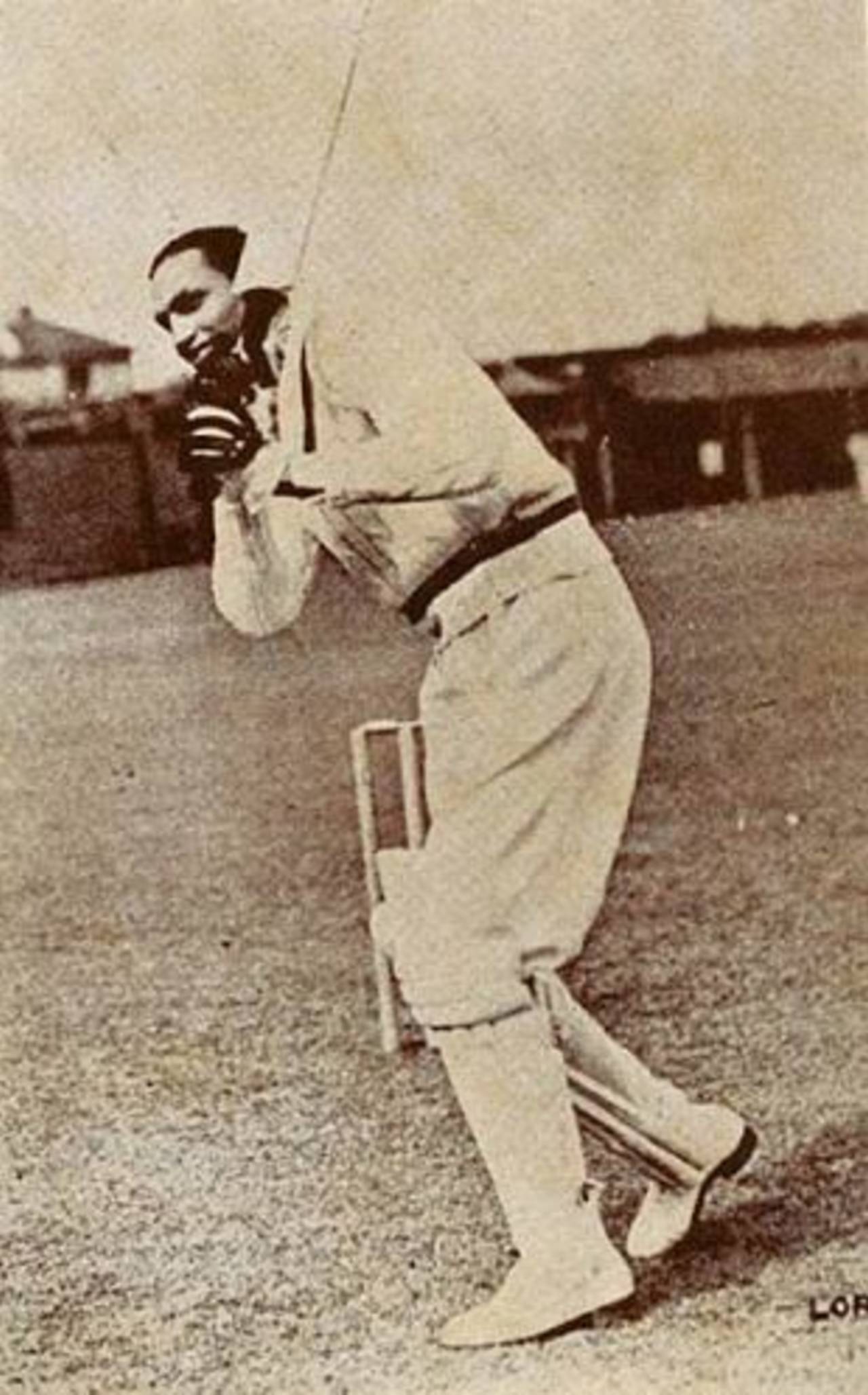A keen contest on the cards
We flash back nearly 80 years to the very first edition of the IPL: big hitting, big money, and an epoch-making headline
By our special correspondents
04-May-2009

Mushtaq Ali earned the most Dalda Derring-Do awards in the very first IPL
Struggling to keep up with the frenetic pace of the IPL, are you? Oh, for the good ol' days, you say, when we could sip our tea as Trevor Bailey went block, block, block. But if it's thrill-a-second adrenalin rushes you want, the IPL doesn't disappoint. The very first edition, back in the summer of 1932, was no different.
One of the first rules the organisers laid out for the tournament was simple: always play at the wrong time. If it's not mind-numbingly hot, it must be depressingly wet. So it was decided that India in May would suit everyone just fine. There was even a suggestion that the Bombay Indians' captain, Douglas Jardine, had had a say in the scheduling, drawing up the itinerary in the Bombay Gymkhana dining room.
Bombay were among the favourites going in to the tournament, but the Holkar Helicopters, led by the audaciously talented CK Nayudu, and the Eleven Kings of Northern Punjab, had impressive line-ups. Nayudu was an advertiser's delight. You think the seven-and-a-half-minute strategy breaks are too long? Nonagenarians in Indore still talk about a Nayudu six that landed in another district. One remembered counting 76 commercials before the game resumed.
The other Indore hero, Mushtaq Ali, moved up north to captain Punjab. In the game against the Indians he shocked the Bombay crowd with a scoop-paddle, twice changing his stroke mid-stream before caressing the ball towards the members' enclosure.
The Bengal Nights made it clear that they were taking part only to "entertain". The Maharajkumar of Vizianagram - Vizzy to most, Maharaj to those in Calcutta - was not only their owner but also their captain-cum-coach- cum-physiotherapist-cum-psychologist-cum- kinesiologist.
Among the more memorable incidents involving Vizzy was the one where he landed up at the Eden Gardens with the small matter of 36 men to carry his luggage. Before every match Vizzy always made it a point to select three players from his side who would have to justify their places by getting themselves run out. Okhil Babu, 97, a former officer with the Barrackpore Regiment, recalls a sight after the Nights' only victory in the tournament: "I remember Vizzy took his shirt off, but we later realised he only wanted it ironed."
The most attention was focused on the Madras Super Kings. Legend has it that before walking into the Taj Mahal for the first-ever player auction, their owner, the legendary TT Krishna Chari, frantically folded his dhoti at the knee - a great sign of determination, and partly to make sure the clothing doesn't
get in the way of a steely walk - and vowed to pay whatever it took to get Don Bradman. Even when the price rose to a surreal Rs 10, TTK was adamant, and Bradman, predictably, became the first player to break the two-digit barrier. The next day, the Indu newspaper reported on a Bradman fan in Triplicane who had promised to thank God by breaking 1000 coconuts on Marina Beach if the great man had been signed. The headline "Keen contest on the cards" made its first appearance, won a prestigious journalism award, and quickly joined filter kaapi and MR Radha in Tamil popular culture.
Okhil Babu, 97, a former officer with the Barrackpore Regiment, recalls a sight after the Nights' only victory in the tournament: "I remember Vizzy took his shirt off, but we later realised he only wanted it ironed."
The tournament was the talk of the town. Indorewallahs remember women wearing sarees with helicopter designs on their pallus. Holkar's most expensive overseas signing, a precocious 14-year-old Denis Compton, was seen smoking a Pall Mall cigarette and pacing around the dressing room at 7 in the morning, looking for his favorite brand of hair gel.
The first IPL was a commercial bonanza. Radio sales went up on a national scale, and chalkboards outside shops provided passersby with updated scores. What irked listeners, though, was the excessive advertising: Zandu fours, Remington shots, Johnnie Walker maidens - even a commentator as venerable as AFS Bobby was forced to resort to the gimmicks. Refreshingly, India heard a lady cricket commentator for the first time, but the significance of the moment was drowned in talk of how she wore a sleeveless blouse in the commentary booth.
The Helicopters couldn't hold their nerve in a tense semi-final against the Indians. Madras thumped the Eleven Kings in the other semi.
The final was so thrilling that trains were delayed by three hours at Victoria Terminus - since all Railways employees were sitting atop trees near the Bombay Gym.
The legend goes that Bradman was busy writing his match report for an Australian newspaper when the first wicket fell. Madras were 10 for 1, chasing a mammoth 23 for victory. Jardine, expressionless as ever, had set an 8-1 field and the crowd waited with bated breath. TTK rolled up his sleeves as Harold Larwood began his menacing run to the wicket.
The rest, as they say, is history. Bradman stood still till the last minute, before calmly switch-hitting a mighty six that soared over the clock tower. It was the moment the game changed forever. The rest was a cinch. The "British East India Company Shot of the Century" was followed by Bradman walking up to his partner, MJ Gopalan, and uttering the immortal words "There are two teams out here; only one is playing cricket".
With inputs from Siddhartha Vaidyanathan and Pradeep Ramarathnam